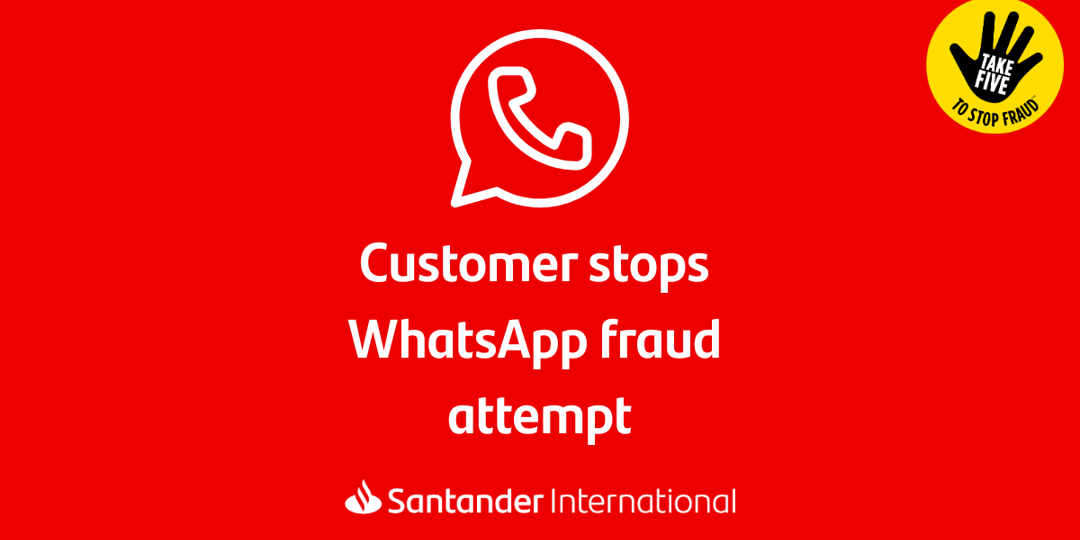Help at this difficult time
When you are bereaved, dealing with the deceased’s affairs may feel complicated and time consuming. To help, we have provided answers to some frequently asked questions. These cover everything from what documents you will need to provide to us, to what happens if the late customer held a joint account. If at any time you are unsure how to proceed, please contact us.
How to notify us
If the deceased was a Santander International customer, please contact us as soon as possible. If the deceased held accounts with a branch other than the Isle of Man branch or Jersey branch, you will need to contact Santander UK plc’s Bereavement Service separately.
We will require one of the following documents in order that we can amend our records:
- the original death certificate or
- a certified copy of the death certificate
At the point of notification for a sole account holder we will block all access to Online Banking and also any Visa debit cards in the late customer’s name. For joint account holders, the late customer’s access to Online Banking, and any Visa debit cards in their name will be blocked. These preventative measures are designed to prevent against theft or fraud.
Please note that we are unable to release any information in regards to any account(s) a person might have held with Santander International until we are in receipt of one of these documents.
What to do - frequently asked questions
Joint accounts
What happens to my account if the joint account holder passes away?
In line with our Terms and Conditions, we will automatically transfer ownership of the account(s) to the surviving account holder(s) upon receipt of an acceptable death certificate. The account number(s) will remain the same however the account(s) will be renamed to the name(s) of the surviving account holder(s).
Can I continue to use my Visa debit card once the deceased account holder passes away?
Yes. You can continue to use your own Visa debit card as normal. Do not use the Visa debit card of the deceased customer as this is blocked upon notification of death and cancelled upon receipt of an acceptable death certificate.
Can I continue to use my chequebook once the deceased account holder passes away?
No. Upon receipt of an acceptable death certificate, we will cancel the existing joint account cheque book.
Sole accounts
I am the Executor of the deceased customer's Will, how do I obtain the funds?
Always ensure that you have the most up to date Will. This is important as it states the wishes of the deceased and names the Executor(s).
Our requirements for releasing the funds of late customer's account(s) will depend on the total value of assets held with us;
- Funds that total over £10,000 require a Grant of Probate prior to release. The Probate you need to obtain will depend on the situs of the account. If the account is Isle of Man situs you will need to obtain Isle of Man Probate. If the account is Jersey situs you will need to obtain Jersey Grant of Probate.
- Funds that total under £10,000 require the completion of a Small Estates Indemnity Form, accompanied by a certified copy of the Will of the late customer*.
We will also require suitably certified photographic identification and address verification for the Executor(s) under either scenario. Further details for the release of funds are available on request.
* Please note that if the customer was a Jersey Resident and their account(s) are Jersey situs, we will need to see a Jersey Grant of Probate regardless of whether the funds are below £10,000. If the customer died intestate, we will need to see a Grant of Letters of Administration issued by the Jersey Court.
Can UK Probate release funds held in the Isle of Man or Jersey?
No. The Isle of Man and Jersey are not governed by UK law, so a separate Grant of Probate is required in accordance with the relevant Crown Dependency Government.
What if the deceased died without leaving a Will?
Regardless of the amount of funds held, if the deceased died without a Will, you will need to obtain a Grant of Letters of Administration. This is a legal document granted by the relevant Court or probate registry to appoint appropriate people to deal with a deceased person’s estate.
We will also require suitably certified photographic identification and address verification for the Executor(s) under either scenario. Further details for the release of funds are available on request.
How do I obtain Probate in the Isle of Man or Jersey?
Information on applying for Probate may be found on the Isle of Man Courts of Justice website and the Jersey government website – please be aware that in order to apply for Probate you may need to enlist the help of an advocate. We have compiled a list of advocates in both the Isle of Man and Jersey who deal with probate matters (available on request) should you or your local legal representatives wish to engage their services.
If the deceased customer held accounts over £10,000 in both the Isle of Man and Jersey, will I need two different types of Probate?
Yes. As the two jurisdictions are governed under separate law, an Isle of Man Probate will not release funds held in Jersey and vice versa.
If the deceased customer had funds in a Fixed Deposit Contract, can I access the funds before the Contract matures?
Yes. In line with our Terms and Conditions, we will repay the maturing funds to the Executor(s) or Administrator(s) on the maturity date or earlier if requested by them.
Who do you class as an acceptable certifier?
Please see our documents you will need to provide leaflet for further clarification on how to have your documents certified correctly.
What happens if I am a third party on an account but the sole account holder passes away?
Third party authorities become null and void once the sole account holder passes away. You will no longer be entitled to act on the account and we cannot release information to you unless you are the Personal Representative of the deceased.
Glossary
Below is a glossary which will help you to understand some of the terms used when you are dealing with a bereavement:
Beneficiary: a person who inherits part or all of the estate
Certified copy: a copy of the original document that has been signed and verified by an acceptable professional person
Customer/Personal representative: generic term for someone who is administering the estate
Crown Dependency: a territory that is under the sovereignty of the British Crown but does not form part of the UK. The Crown dependencies are the Channel Islands and the Isle of Man
Death certificate: the legal document issued by the registry office after a death has been registered
Estate: all assets, including money held in a bank account, belonging to the deceased
Executor: a person appointed by a testator to carry out the terms of their Will
Grant of Letters of Administration: a document giving the authority to administer an estate where there is no Will. This is known as dying intestate
Grant of Probate: A document formally allowing someone to administer the personal property (movable estate) held in the country of issue of someone who has died. The deceased must have left a Will
Grant of Representation: a collective term for both the Grant of Probate and the Grant of Letters of Administration. The Grant provides the names and addresses of the Executors or administrators
Intestacy rules: the rules dictating how the deceased’s estate is to be shared when there is no Will
Joint Account: means an account that is held by more than one person with us. Joint account holders are jointly and severally liable for any funds, deposits withdrawals and general up keep of the account, in line with the agreed terms and conditions of their account(s)
Situs: the place where something (i.e. your bank account) is held to be located in law
Testator: A person who has made a Will















